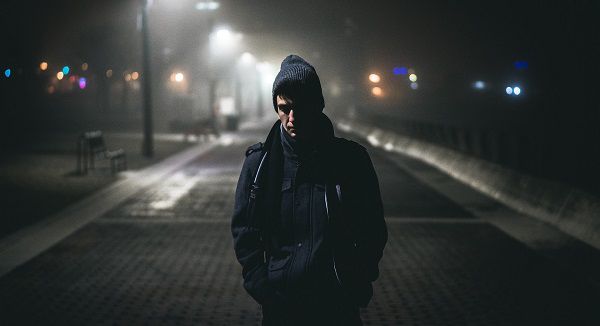Stay safe during dark nights

With winter approaching and the evenings getting dark earlier students are reminded to take care following a night out or a late study session on campus.
We have compiled a list of top tips on how to stay safe during dark nights.
1. Use the Selly Express bus service
If staying on campus late don't forget to take advantage of the Selly Express Bus Service, this is a free bus service to students to use to get home safely in the evenings, the bus departs from the Main Library (last departure 12:30am) and serves many roads through Selly Oak, dropping you right at your front door. The timetable and roads served can be found here.
2. Stay in groups where possible
Whether you’re leaving after having a late session in the library, going to a friend’s house or are heading home after a night out, avoid walking by yourself at night. Try to walk with other people that you know; safety in numbers is key when it comes to walking in the dark.
3. Know your route and walk safely
Be sure to know where you’re going. Plan your route ahead by using google maps or other route planning apps. Stick to well-lit areas, use main roads and pedestrian areas. Avoid short cuts, alleyways, parks and wasteland. Walk along the pavement facing oncoming traffic but keep back from the curb and keep clear of recesses such as doorways.
4. Plan ahead
Whenever you’re out for the night, be sure to plan ahead. Arrange with someone close to you to pick you up or book a taxi in advanced. If you’re planning on getting a taxi, make sure you keep money aside to pay the fare and be sure to use a licensed taxi firm; never get in an unmarked taxi. The Guild recommends using Ola (app) to catch taxis home.
If you use public transport, always check the times of the last train or bus and have a copy of the timetable, or you can download the apps. The Network West Midlands website has a live status feature, which has up to date information on timetables, delays and diversions which could affect your journey.
If a bus is empty or it is after dark, stay on the lower deck and sit near the driver or conductor. On trains, try to sit with other people and avoid empty carriages; don’t be afraid to move to another seat or carriage.
5. Stay in contact
Make sure you let friends, family or housemates know where you’re going and what time they can expect you back. Keep people updated on your journey if you have to walk, or if you’re getting in a taxi, let someone know when you’re setting off, and then get back in touch with them when you’ve arrived at your destination. That way, they should know if something is wrong if you fail to contact them as expected. If you’re out with friends make sure you know how your friends are getting home too and look out for one another. And remember, when going out for the night to have a fully charged phone so you can make contact in an emergency.
6. Be alert and aware of your surroundings
If you do have to walk alone in the dark, it is important to stay alert and aware of your surroundings, with no distractions. Avoid things such as listening to music or talking on the phone for too long. Walk briskly and with confidence. It is also important to keep any valuables such as phones, headphones, money, keys etc. hidden, as they will draw attention to you, also do not carry important documents like credit cards if you do not need them. If you're carrying a bag, try to have it across your chest and keep your hand over the fastening.
If you think you are being followed, check by crossing the street. If you are worried go to the nearest place where there are other people and call the police. Do not use a phone box as you can get boxed in. If you have concerns about a group of people or a particular situation, keep away.
Be vigilant when using cash machines – protect your PIN, avoid the need to use a cashpoint late at night and if you have been drinking. If you do need to withdraw cash late at night use a machine in a well-lit area and stay with friends.
You can also get a free personal attack alarm from the Police and Partnership Hub in University Centre or from the Community Wardens in the Guild.
7. Contact the Police if you need help
If you have experienced crime, always contact the police rather than posting on social media pages. Call 999 if a crime has just happened, you or someone else is currently in danger or the perpetrators are near by.
Call 101 or use live web chat if a crime happened in the past, nobody is at risk and you need crime advice.
You can also find other top safety tips on our safety intranet pages.